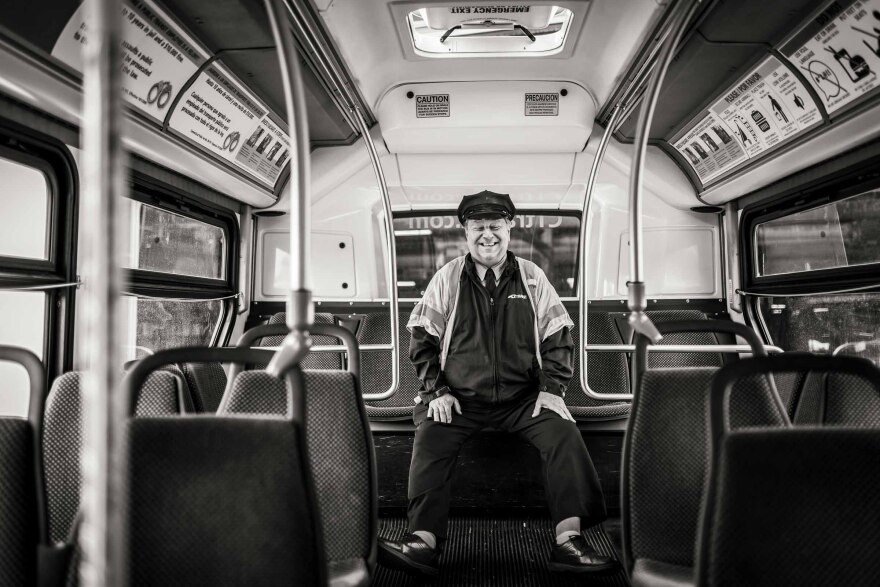A new photography exhibit at the Noah Webster House in West Hartford profiles local front-line workers and their experiences during the pandemic. The exhibit features profiles of firefighters, medical staff, teachers, and other essential workers.
West Hartford photographer Ginny Kemp started with a simple goal -- to honor those who’ve sacrificed during the pandemic.
“There’s a lot of loss and sadness, and a lot of conflict in the world, but it helped me stay focused on the goodness of humanity, you know?” said Kemp. “And so, I felt really lucky that I was in this project with that constant reminder that there are people out there trying to do the right thing and helping other people.”

But Kemp said “The Front Line Project” turned out to be so much more than that — like landing on a definition for “front-line worker.”
“There were some obvious categories of front-line workers we all think of, but as I started going about my day, I thought, ‘Wow, there are so many more people out there who’ve been putting themselves at risk by going to work than we really think about.’”
Take, for example, the prison worker Kemp photographed whose job was to oversee the care of incarcerated people who had contracted COVID-19. Or George Burzynski, who has been a bus driver for CT Transit for over 40 years. Kemp said that in the last 18 months he has missed only a day of work.
“I love the photograph of George on the back of his bus, and he has his arms up on the back bench, and he was laughing at something,” said Kemp. “His eyes are closed, and it was such a spontaneous moment. And even though I don’t really know George, my sense is it really captured his spirit. It almost made me cry because it was those tenderhearted moments that will always stick with me and this project.”
Each photograph tells a story, and Kemp says capturing those stories became as important to her as the pictures themselves. Each worker wrote about their experiences as part of the project. Kemp said she noticed a common thread among most of the front-line workers she photographed.

“Not that these people were denying the hardship and the loss and the challenge of their work, but at the same time they all, and in a really humble way, focused on the people that helped them when they were helping other people — their family, their friends, their colleagues. And just having that sense that the world is more connected than they really thought. And in some way it seems like that brought most of them comfort.”
“The Front Line Project” runs through the end of the year at the Noah Webster House in West Hartford.




